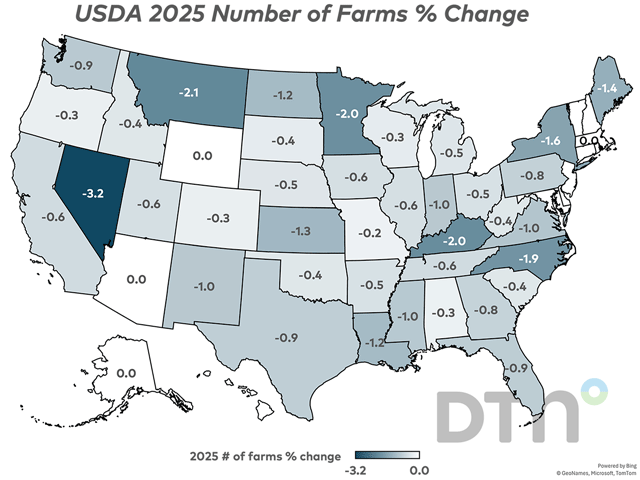DTN Oil
WTI, Brent Sink 5.6% on Demand Weakness, Economic Outlook
WASHINGTON, D.C. (DTN) -- Nearby delivery oil futures on the New York Mercantile Exchange and Brent crude on the Intercontinental Exchange settled Wednesday's session with losses between 5.5% and 7% on government data showing exceptionally weak gasoline demand in the United States leading to a sharp build in inventory. Concern over a broad economic slowdown tied to the potential for another interest rate increase by the Federal Reserve pressured West Texas Intermediate below $85 bbl for the first time since early August.
Oil complex sold off sharply on Wednesday following a bearish inventory report from the Energy Information Administration showing domestic gasoline demand eroded to the lowest seasonal level in 25 years, suggesting a sizable pullback in consumer spending. Average gasoline prices in the U.S. hovered near $3.90 per gallon in September, according to the American Automobile Association, just below $4 per gallon which is considered by many economists to be the breaking point for many American families. Averaging a meager 8.3 million barrels per day (bpd) in September, U.S. gasoline consumption now stands 10% below the comparable 2019 level, 5% below the year-ago level for the seasonal period and even 3% below the 2020 pandemic depressed level.
P[L1] D[0x0] M[300x250] OOP[F] ADUNIT[] T[]
Distillate demand, a proxy for overall economic activity, didn't fare much better, falling to a one-month low of 3.815 million bpd last week and some 4.4% below the same week a year ago. Distillate consumption remained below 4 million bpd each week except for one over the past four months.
Stockpiles at the Cushing storage hub in Oklahoma, the delivery point for West Texas Intermediate, rose by 100,000 bbl in the week ending Sept. 29, ending a streak of seven consecutive weeks of draws. Commercial oil stockpiles were down 2.2 million bbl in the reviewed week to 414.1 million bbl and are now 5% below the five-year average. However, as demand weakness continues and the economy slows along with seasonal refinery turnaround activity, crude stocks are expected to flip back into a restocking pattern in the coming weeks.
Wednesday's selloff in the oil complex followed a decision this morning by the Organization of the Petroleum Exporting Countries, along with partners outside the cartel, that reaffirmed their commitment to ongoing production targets. Saudi Arabian oil minister Abdulaziz bin Salman Al Saud further pledged to extend the 1 million bpd production curtailment, first introduced in July, through the end of the year, effectively depressing the Kingdom's crude output to 9 million bpd in the fourth quarter. In a separate statement released by Russian Interfax Media, Deputy Minister Alexander Novak said Moscow would stick with a 300,000-bpd export curtailment into November and December.
OPEC+'s Joint Ministerial Monitoring Committee, however, made no additional policy recommendations and no comments were made on current production cuts being extended into early 2024. The full 23-nation OPEC+ coalition will hold a ministerial meeting Nov. 26 to address policy steps for the next year.
At settlement, WTI November futures on NYMEX declined $5.01 to $84.22 bbl and the international benchmark Brent contract for December delivery dropped back to $85.81 bbl, down $5.11 bbl on the session. NYMEX November ULSD futures retreated $0.1776 gallon to $3.0178 gallon and front-month RBOB futures declined $0.1621 to $2.1980 gallon.
Liubov Georges can be reached at liubov.georges@dtn.com



